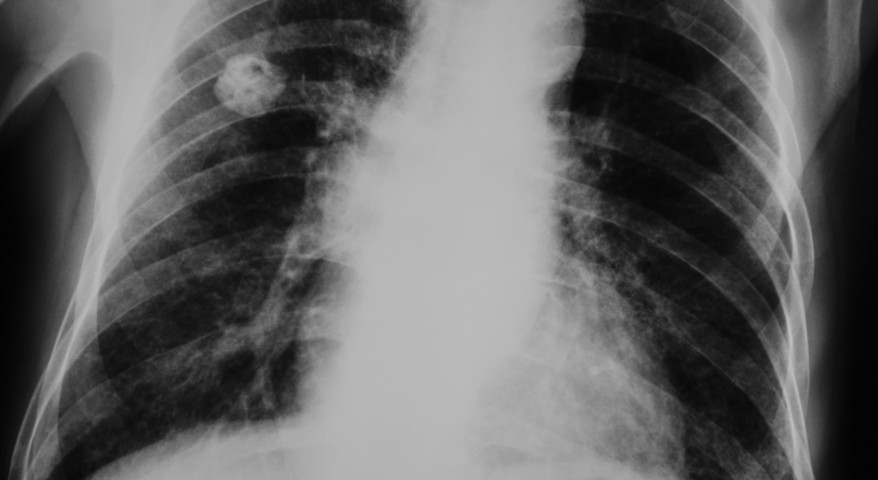A new study, presented on April 14 at the European Lung Cancer Conference (ELCC) in Geneva, Switzerland, holds promise for the treatment of pleural mesothelioma. Results from a Phase 1b trial showed that immunotherapy with a specific bacteria, used together with chemotherapy, produced a 90 percent cancer control and 59 percent response rate in people with malignant forms of this disease.
“Malignant pleural mesothelioma is a cancer of the lining of the lung and is rare but difficult to treat,” Thierry Jahan, a professor of medicine at the UCSF Helen Diller Family Comprehensive Cancer Center in San Francisco, said in a press release. “Standard of care treatment with pemetrexed and platinum compound chemotherapy gets a 30% response rate but a modest impact on survival. So there is a clear unmet need in targeting this specific population.”
Individuals with malignant pleural mesothelioma have mesothelin in their tumors. Researchers used a bacterium called CRS-207 (modified with two gene deletions to make it less likely to cause illness) that can produce an antibody against mesothelin.
“In our early studies, CRS-207 induced an anti-mesothelin response and cellular tumor specific immunity in patients with mesothelin expressing tumors,” Professor Jahan said. “We also have data suggesting that this immunotherapy works synergistically with chemotherapy, so testing the effect of this immune targeting agent with chemotherapy was a natural step.”
The study focused on how the modified CRS-207 could treat advanced mesothelioma when used along with standard chemotherapy. A total of 38 patients received two CRS-207 infusions over a two-week period. They also received a maximum six cycles of pemetrexed plus cisplatin, commonly used chemotherapy. This was followed by two more CRS-207 infusions within a three-week period.
After 9.4 months, investigators found that 59 percent of the patients had at least a partial response to the treatment, and that 35 percent had “stable disease” that was not progressing further. Overall, the scientists estimated a 94 percent rate of disease control.
Side effects were few, the investigators said, and included a rapid increase in temperature and shivering.
“The safety of the agent was remarkable,” Professor Jahan said. “It really does appear to be safe, and was well-tolerated in combination with pemetrexed and platinum chemotherapy. There didn’t seem to be any cumulative toxicity.”
The treatment will be further evaluated in human studies, hopefully providing an option for this difficult-to-treat cancer.
Asbestos exposure is the main cause of pleural mesothelioma. It causes tumors of the lung lining, and may affect other organs, including the stomach and heart. Because the one-year survival rate of pleural mesothelioma patients is only 38 percent, new and effective treatments are urgently needed.


